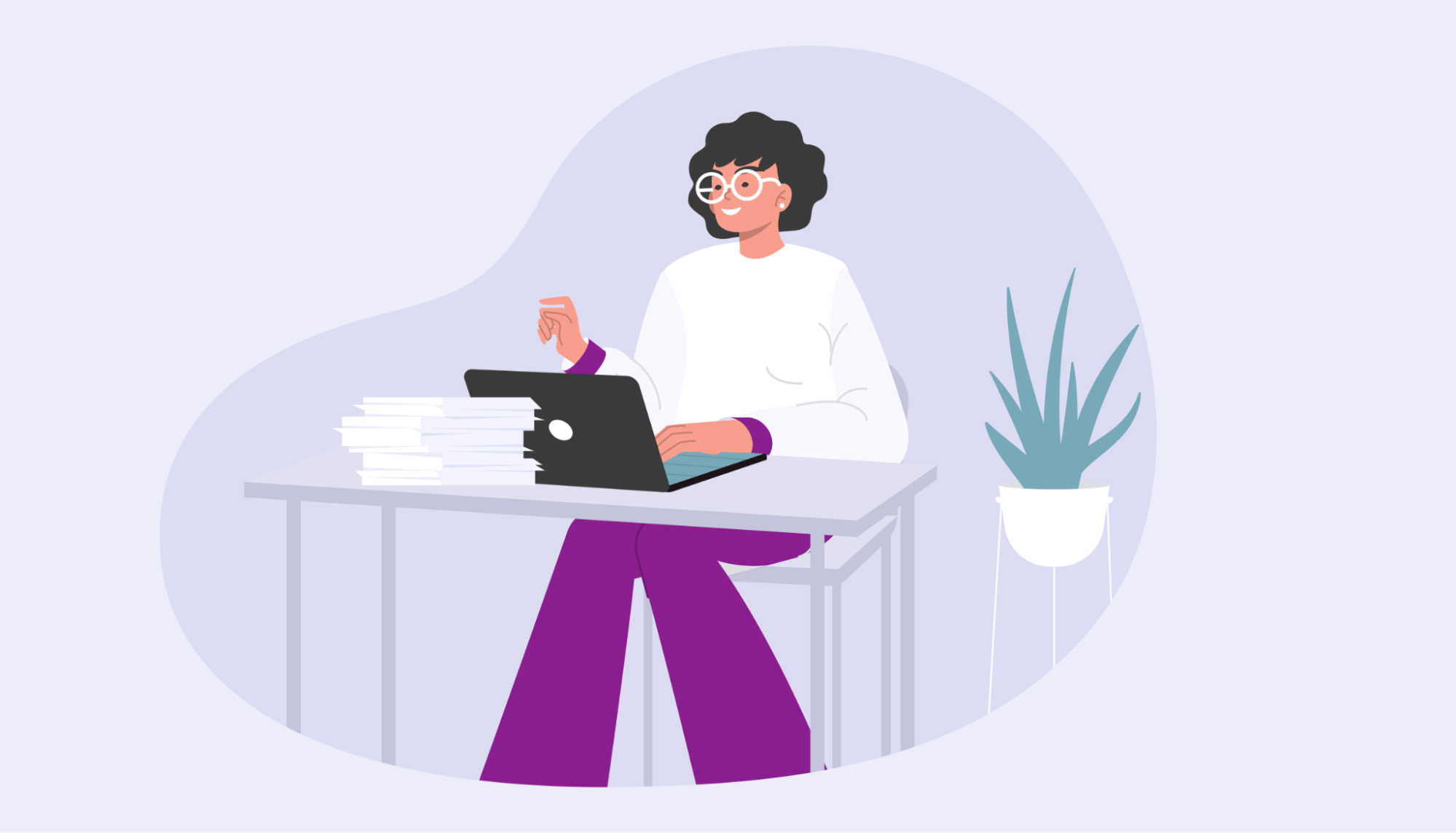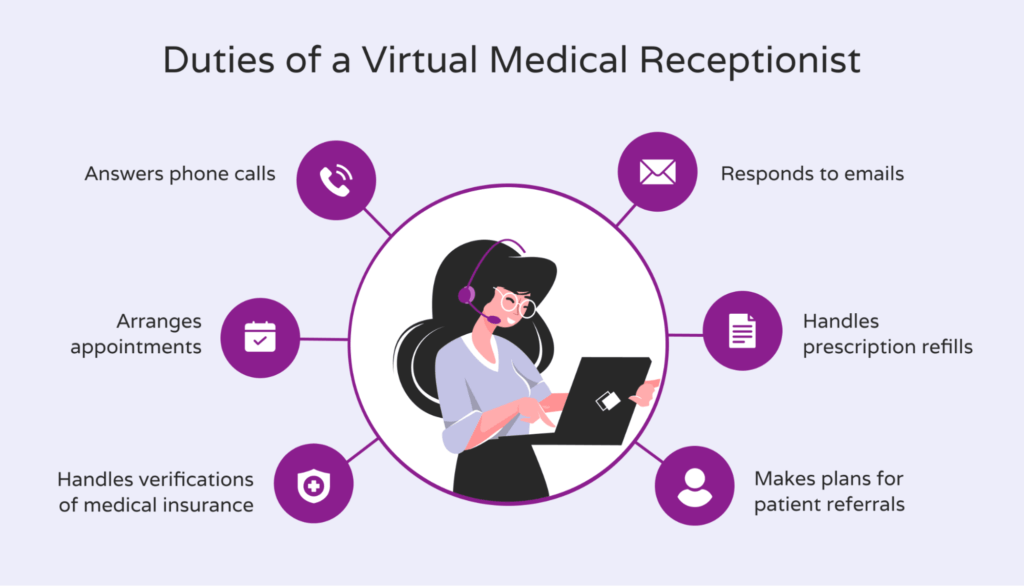Working as a mental health practitioner can be taxing work, especially if you’re self-employed. In addition to caring for your patients, you also need to handle the administrative workload that piles up in between patients.
Hiring a mental health assistant can help you reduce your workload, see more patients, and get home earlier. Your efficiency as a mental health professional can improve while your bottom line goes up.
Here’s everything you need to know about mental health assistants and why you should consider building your team the virtual way.
What is a mental health assistant?
Mental health assistants are administrative workers who support mental health professionals. They can work in outpatient centers, behavioral health facilities, hospitals, psychiatric centers, residential care facilities, and other places in which mental health care providers also work.

So who can these assistants help? Mental health assistants are ideal helpers for psychiatrists, counselors, therapists, psychologists, and other similar health practitioners who help patients with their mental health.
Not every mental healthcare provider works with an assistant. However, those who do can benefit from a reduced workload and an ability to concentrate on helping their patients.
Assistants in mental healthcare can work in person with providers. But they can also complete administrative duties remotely from anywhere in the world.
Need help finding a remote mental health assistant at an affordable price? Get in touch with our team to learn how a virtual mental health assistant could help your private practice.
What does a mental health care assistant do?
Mental health assistants mainly perform administrative work and general data entry to support teams of healthcare workers in a mental health setting. In some cases, they can handle the monitoring of clients, assess client behavior, and help patients to perform daily tasks.
For instance, mental health assistants can manage patients who arrive at your facility or private practice to make sure they fill in the right paperwork.
In addition to greeting patients and giving them proper directions on what to do, mental health assistants can also perform other receptionist duties as needed. Even if you already have a dedicated receptionist, your assistant can step in and handle the overflow of patients if they get overwhelmed.
Plus, they can provide an answering service if you get too many inbound calls for you or your existing team to handle on your own.
Every time you need to update a patient’s chart or file, you can ask your assistant to handle it for you. They can routinely grab your notes after appointments and input them into your system — no need to think about it on your own.
If you struggle to manage a busy schedule, your mental health assistant can take this responsibility on as well. All you have to do is show up to the office, and they can update you on which patients you need to see that day.
In the same vein, your assistant can contact patients for appointment reminders or cancelations. You’ll have fewer no-shows and waste less time tracking patients down.
Finally, mental health assistants may also perform light bookkeeping duties to keep your books up to date. However, they don’t usually have accounting training, which means you’ll still need an accountant to perform more advanced financial tasks.
Benefits of hiring a mental health assistant
Having someone to assist you and your patients brings a slew of benefits — here are some examples of what you can expect.
1. Provide better patient care
A mental health assistant lessens your workload in the office. And we don’t just mean your physical workload; assistants also reduce your mental workload. There’s no more need to think about all the menial tasks you have to handle in between patients.
This means you’ll have more time to dedicate to your patients and persons with disabilities in your care. Instead of trying to remember what’s next on your to-do list, you can place your entire focus on your patients, one at a time.
You can be more present with your patients and mitigate the risk of making mistakes. When patients need extra care, you can dedicate your time without worrying about who will clear that pile of paperwork quickly growing on your desk.
And when patients get the support of your best self, everybody wins.
2. Enjoy shorter workdays
Guess what — when you’ve got a reliable assistant to catch what falls between the cracks, you’ll have much less busy work on your plate. Even if you had to see patients back-to-back, someone else is available to update all the files and tie up loose ends.
That means you can enjoy shorter workdays and go home by 5 p.m.
You have fewer responsibilities to oversee, which means there’s no need to get caught up with paperwork and menial tasks. It becomes much easier to achieve a healthy work-life balance and enjoy your family, friends, and hobbies outside of work.

By going home earlier and enjoying your time off, you can come back to the office refreshed the next day. This is yet another example of how you can show up in a better state to support your patients.
3. Implement more efficient workflows in your practice
Running a tight ship in the mental healthcare space is no easy feat. Private practices need efficient workflows to make the most of their resources.
For instance, you may need to perform live charting to make sure you’re not missing anything while your patients talk to you. But it can be challenging to take notes while simultaneously listening and asking follow-up questions.
One example of a more efficient workflow is a live charting process with a mental health assistant. Not only can they perform the live charting for you, but they can update patient files with these notes once the appointment is over.
This is just one example of a process you can improve, but mental health assistants can improve several other workflows, including but not limited to:
- Patient communication
- Cancelation processes
- Insurance claims and verifications
- Finances
- Staff training
You can fix the leaks in your private practice and retain more profits when everything runs more efficiently.
4. Stay in your zone of genius
Whatever your specialty may be in mental health, it probably doesn’t involve sifting through administrative and back-office tasks. Someone needs to do it, but does it need to be you? Especially when you’ve spent years training for much more specialized skill sets?
Everyone is more effective at something, and you’re more effective at the job you’ve been trained to do. The same goes for mental health assistants. They’re trained in efficiently executing administrative tasks. That’s their zone of genius.

They can handle all the repetitive tasks while you do what you enjoy doing most. With this dedicated person on your team, everyone gets to shine doing what they do best.
Why you should consider hiring a virtual mental health assistant
In-person mental health assistants are expensive and difficult to find. While there may be some tasks that need to be completed in-house, the bulk of the role can be completed remotely. So a great alternative option to consider is hiring a virtual mental health assistant instead.
Virtual assistants perform all the clerical duties of an in-person assistant but from a remote location. Here are six reasons you should consider this alternative.
1. Cut the costs of hiring a mental health assistant
Hiring a remote mental health assistant will incur much lower equipment costs than someone who works directly in your private practice. Virtual assistants don’t require office space at your location.
But they also don’t require expensive equipment to do their job. Plus, when you hire a virtual mental health assistant through Hello Rache, there’s no need to supply a work laptop.
You’ll save on salary in addition to overhead. Keep in mind that administrative assistants have an average salary of $19.08 per hour in the US. But that’s not the total cost of hiring someone.

In-person mental health assistants also need you to factor in the following expenses:
- Vacation time
- Sick leave
- Benefits
- Taxes
- Insurance
But remote mental health assistants from HelloRache don’t require any of these, or any other expenses you could think of, for that matter.
Hello Rache virtual assistants cost $9.50 per hour flat. Plus, there’s no commitment so you can use them as much or as little as you need.
To learn more about mental health assistant salaries and other associated costs, read our article.
2. Expand your practice
Having a virtual assistant to pick up the slack in your private practice can do more than just alleviate your workload. The time you save with virtual mental health assistants can also be used to take on more patients, depending on your personal goals.
Virtual mental health assistants provide better profit margins than hiring an in-person mental health assistant. That means it won’t be as challenging to expand and scale your practice if that’s part of your goals.
Let’s walk through an example and pretend you save ONLY five hours each week by hiring a virtual assistant. Because a remote mental health assistant only costs $9.50 per hour, five hours of labor will cost you a total of $47.5 per week.
By saving five hours, let’s say you’re able to take on five new patients each week. If you charge $150 per 1-hour session or preparation of treatment plans with your patients, you can make an extra profit of over $700 per week once you remove the cost of your assistant. This amounts to a total of $2,800 per month.
3. Access limitless talent
It can be difficult to find talented workers in your local area. If you live in an area with a small population, that challenge is even more significant because you’ll have a much narrower pool of candidates to choose from.
The best talent may work in other mental health facilities. Many others may go back to school and become nurses, which means you’d invest tons of time in training someone who ends up leaving.
When you go virtual, you can access thousands of potential candidates from across the world.
4. Reduce training time
Virtual mental health assistants at Hello Rache are already HIPAA-compliant. Many of them are also trained and qualified healthcare professionals, such as registered nurses. This means they understand the standards of patient care required.
Plus, they have interpersonal skills, communication skills, and other useful skills to make sure your practice and your patients are in good hands.
Your assistant will already be knowledgeable in most EMR/EHR systems and other mental health technology, drastically reducing the time you need to train them. This means your remote mental health assistant can quickly become a profitable member of your team.
5. No long-term commitment
Hiring employees in person is a long-term commitment, which is why it’s risky. It’s not as much of an agile solution if you need support in your practice for a short period.
Plus, you can’t scale quickly with in-person staff. Even if you waive the time it takes to train a new employee, you still need to account for the recruitment process.
With a virtual mental health assistant, you get the hours you need, no more, no less. There’s also no need to commit for any length of time.
Do you need more assistants to cover summer vacations for your in-person staff? You can do that. Want to hire 10 people at once to scale quickly? You can do that too.
6. Enhanced operating hours
You can use evenings or weekends to get administrative work done when you’re working with virtual mental health assistants.
Virtual assistants from Hello Rache can work enhanced operating hours as needed. You don’t need to think in terms of 9 to 5.

For instance, you may want someone to answer the phone in the evening and throughout the weekend instead of having an answering machine. To achieve this, you can have your regular staff (or a virtual assistant) handle these duties during regular working hours while a second assistant handles evenings and weekends.
Add a fully-trained mental health assistant to your team
Whether you have existing support staff on your team or not, a virtual mental health assistant can alleviate everyone’s workload and improve your bottom line.
Are you interested in onboarding a mental health assistant quickly? Book a call with our team, and we’ll show you what we can do for you and your practice.



